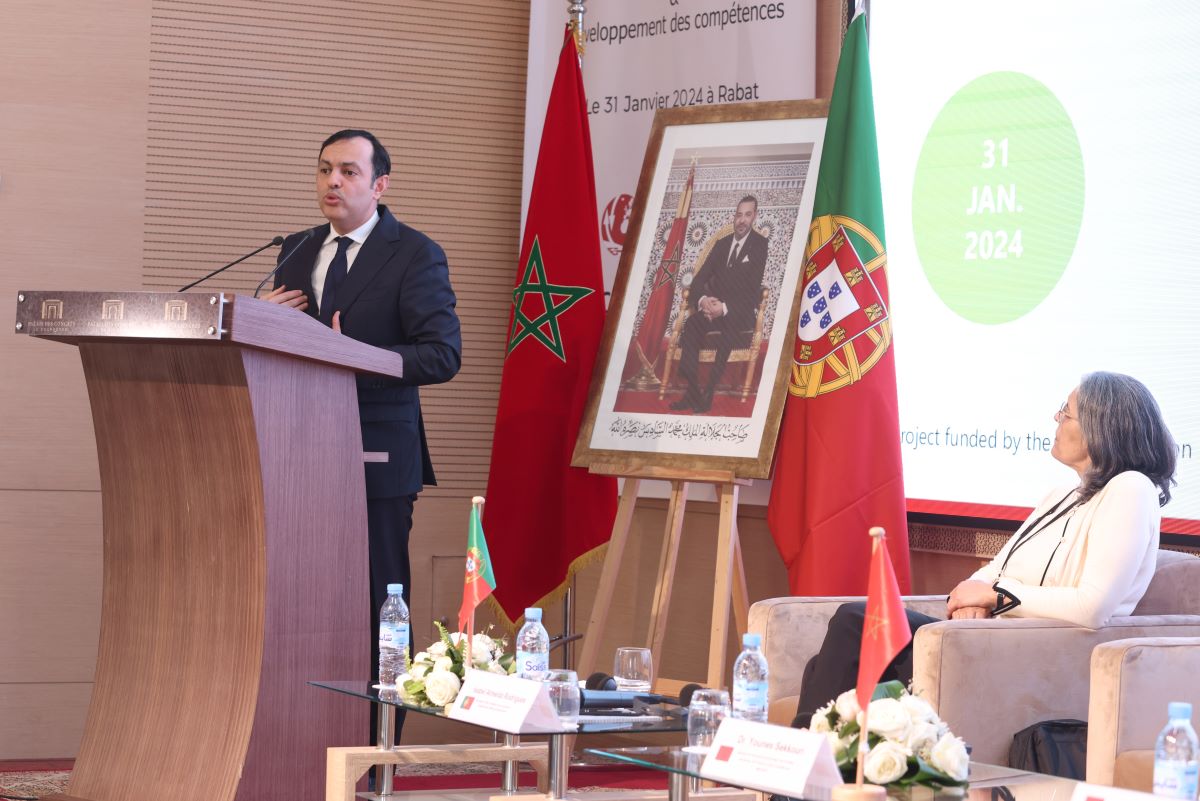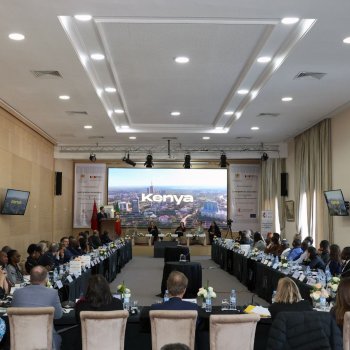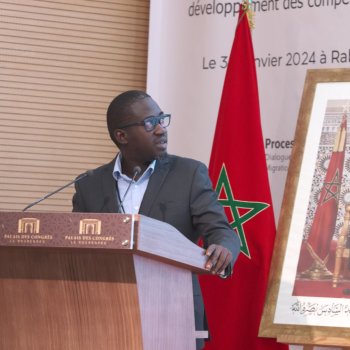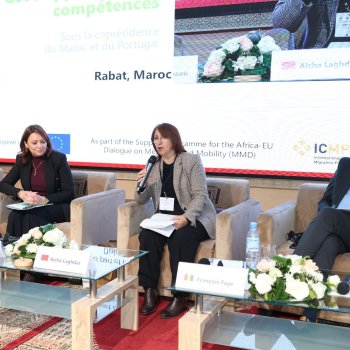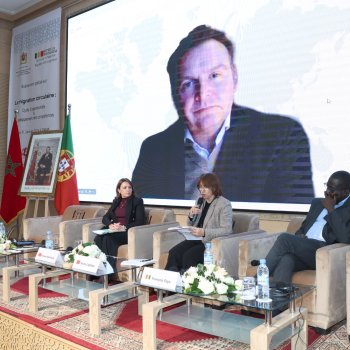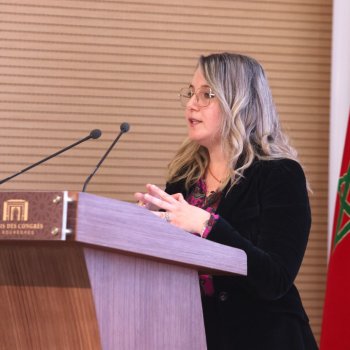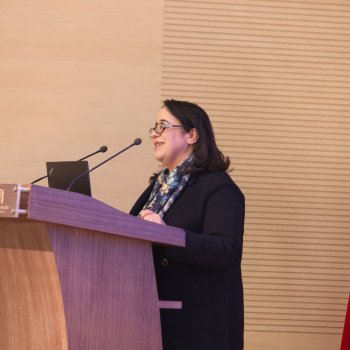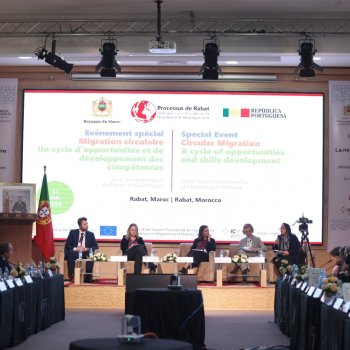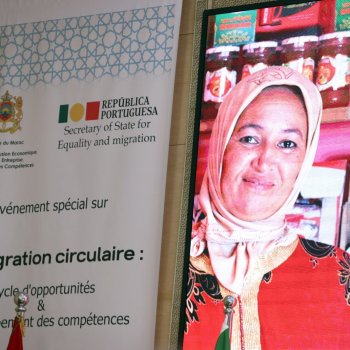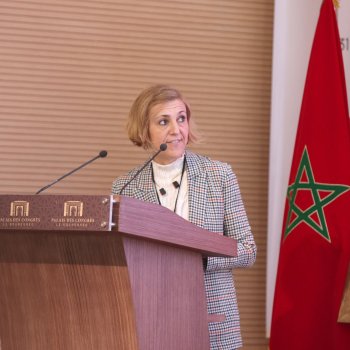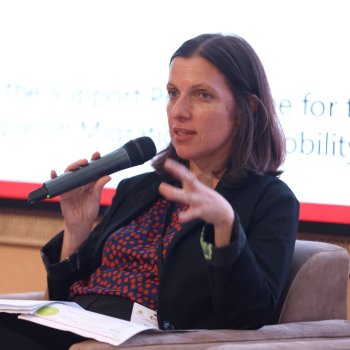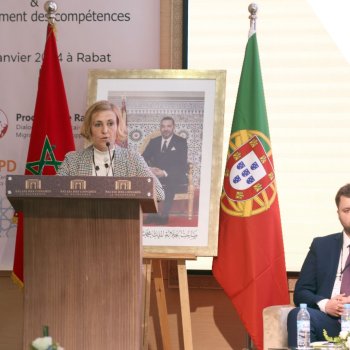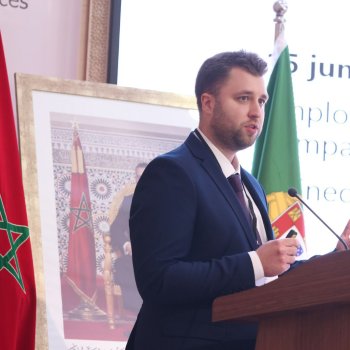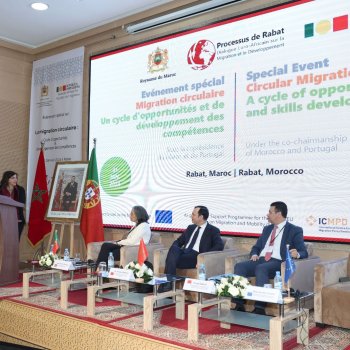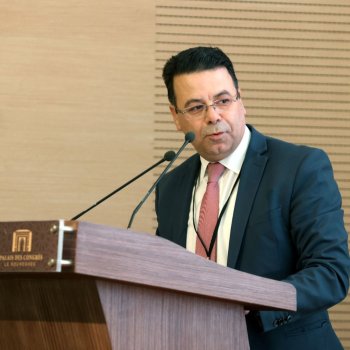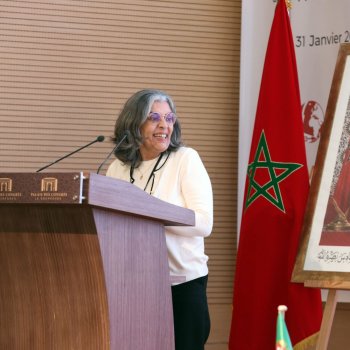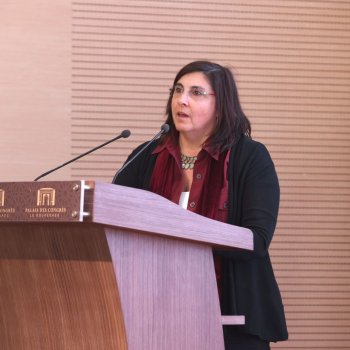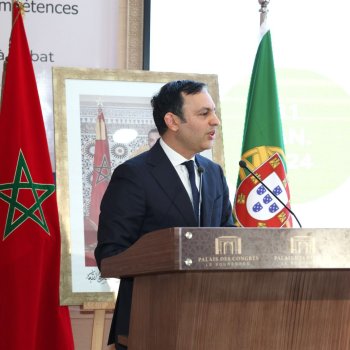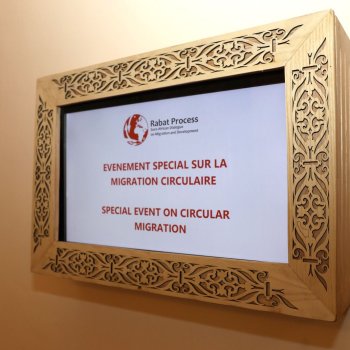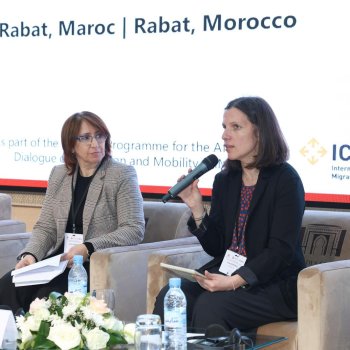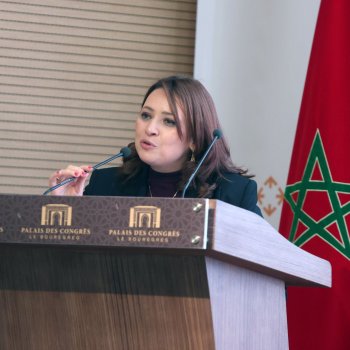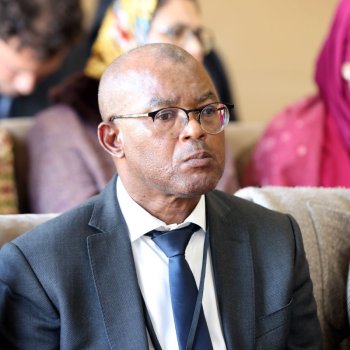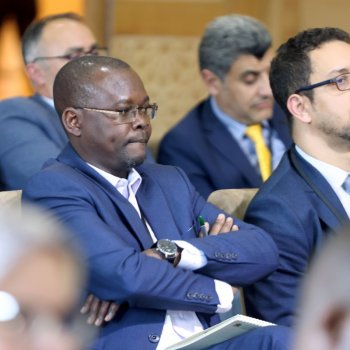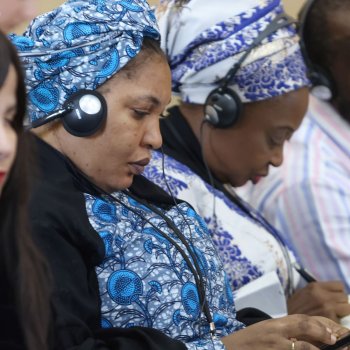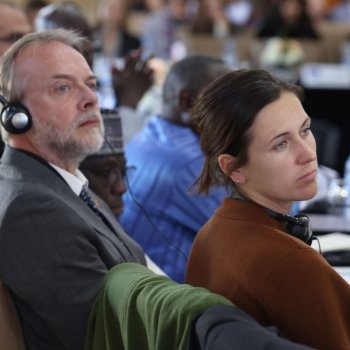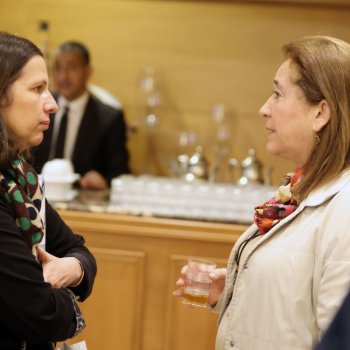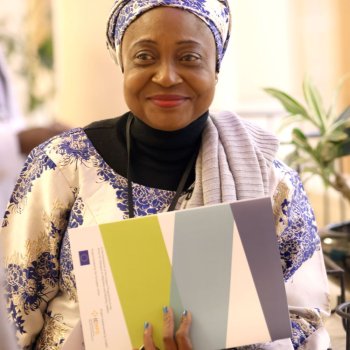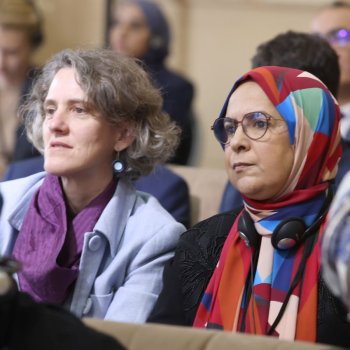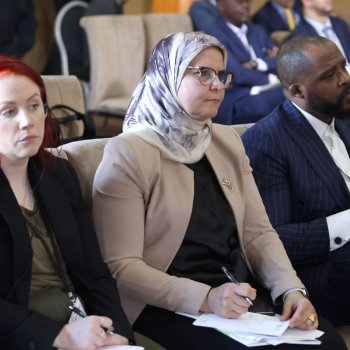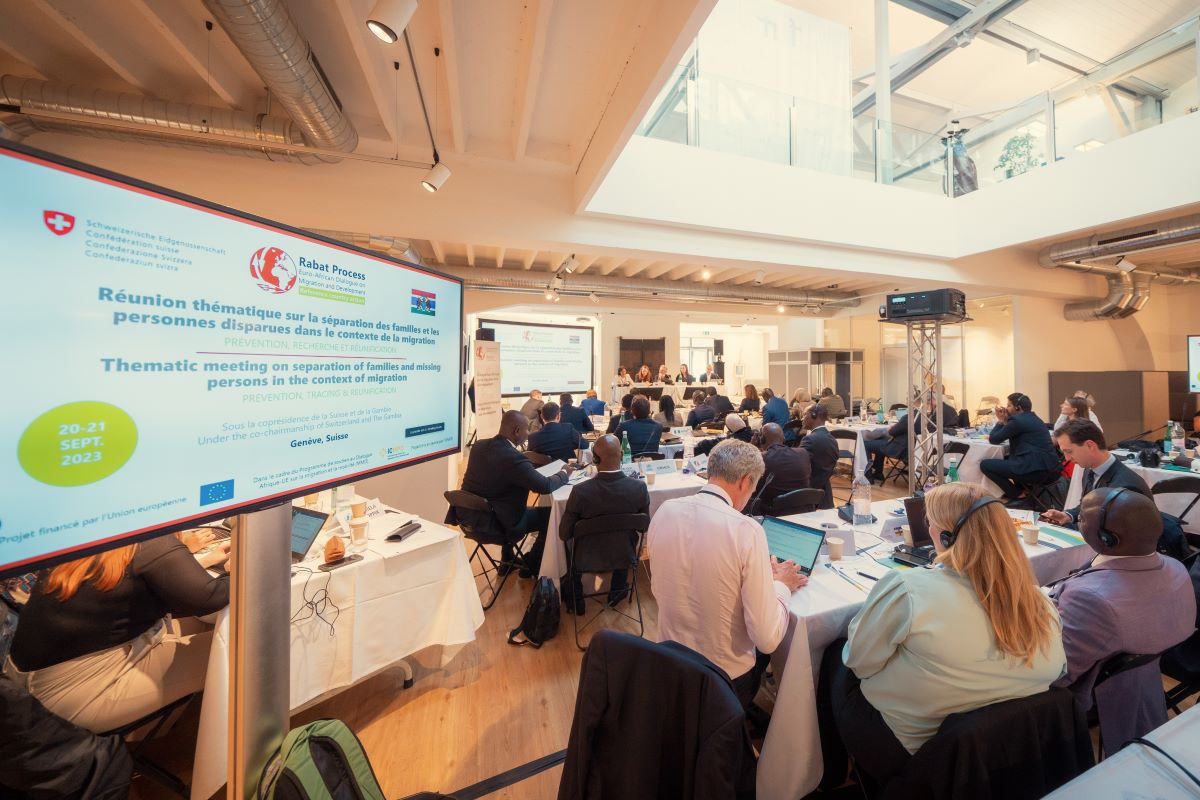On 31 January 2024, a Rabat Process Special Event on Circular Migration took place in Rabat, Morocco, co-chaired by Morocco and Portugal. A total of 130 participants from 40 European and African countries convened to explore key aspects of circular migration with a focus on economic opportunities and skills development. The meeting provided an interactive platform for discussion, bringing together experts, practitioners and stakeholders around the development issues related to circular migration. Notably, this event marked the culmination of Morocco’s recent Chairmanship of the Rabat Process and was followed by a Senior Officials Meeting and handover of the Chairmanship to Portugal the following day.
Collaborative efforts for mutually beneficial circular migration
The Special Event saw the participation of high-level officials, including Moroccan Minister for Economic Inclusion, Younes Sekkouri, and Portuguese Secretary of State for Equality and Migration, Isabel Almeida Rodrigues. The high-level representatives underscored the collaborative efforts needed for safe, legal, and mutually beneficial circular migration, addressing both economic needs and the protection of migrants' rights. Minister Y. Sekkouri highlighted “the necessity of strong political commitment” to advance circular migration initiatives and reduce risks of irregular migration, and State Secretary I. Almeida reiterated that “the engagement of public authorities and the private sector is crucial for the success of labour mobility initiatives while ensuring workers' rights”, and mentioned the instrument of labour mobility agreements that Portugal has already concluded with several countries as an example.
Fourteen recommendations based on two thematic panels
The first panel explored successful experiences of circular migration and how they could contribute to positive results for countries of origin and destination, particularly in terms of facilitating the mobility of migrant workers and supporting social integration and socio-economic impact. The second panel delved into opportunities for collaboration among Dialogue partner countries in skills development, emphasising entrepreneurial mobility, investment in market-oriented training, and facilitating mutual recognition of professional qualifications. A total of fourteen recommendations were formulated by the moderators of the panels, aiming at boosting operational and strategic actions of Rabat Process partner countries on circular migration.
Circular migration in the Rabat Process
The meeting echoed the priorities of Domain 2 of the Cadiz Action Plan 2023-2027, the multi-annual framework defining the strategic objectives of the Rabat Process. More specifically, the meeting addressed objective 3 which aims to “Promote regular migration and mobility, in particular of young people and women, between and within Europe, North, West and Central Africa, including through Talent partnerships”. Progress related to the implementation of the Cadiz Action Plan was assessed at a Senior Officials Meeting the following day.
Documents
- Outcome document - Special Event on Circular Migration
- Presentations Panel 1 - Special Event on Circular Migration
- Presentations Panel 2 - Special Event on Circular Migration

